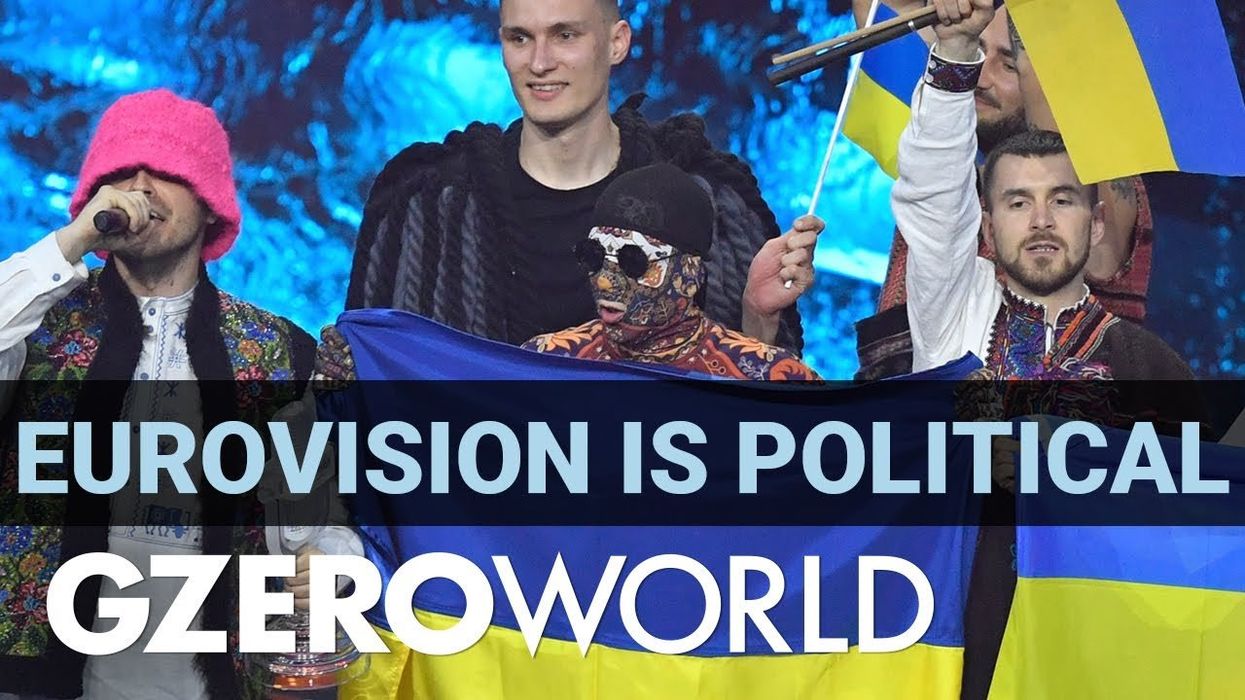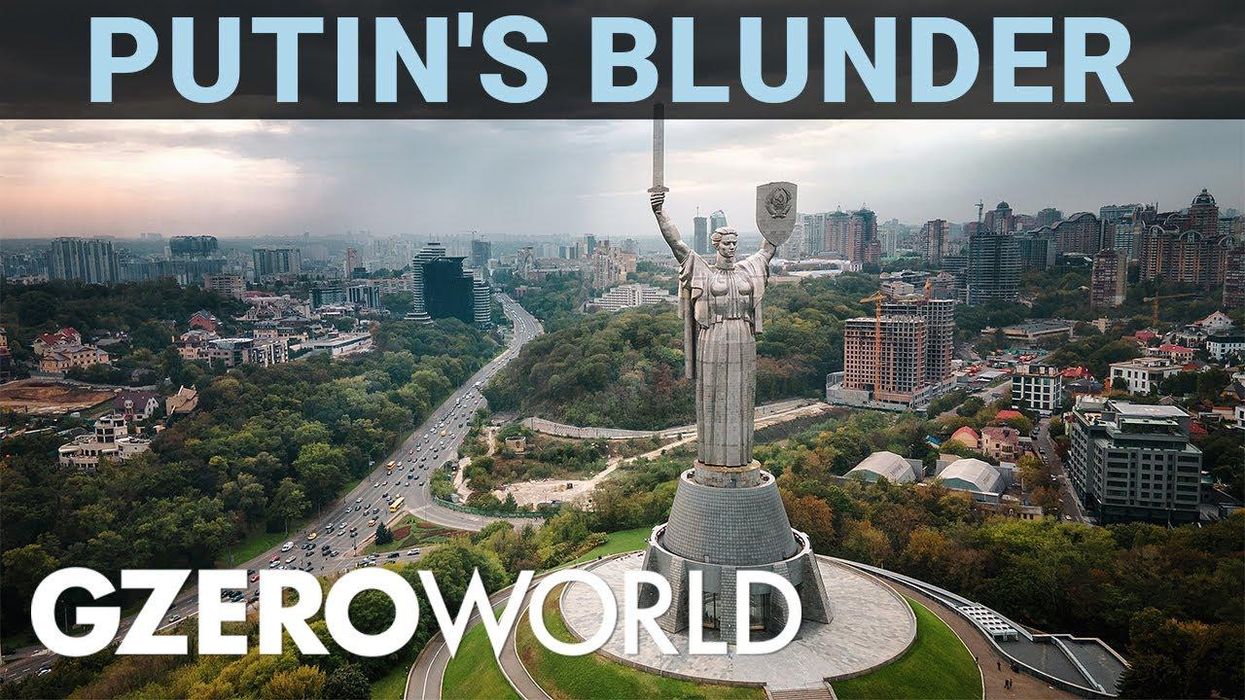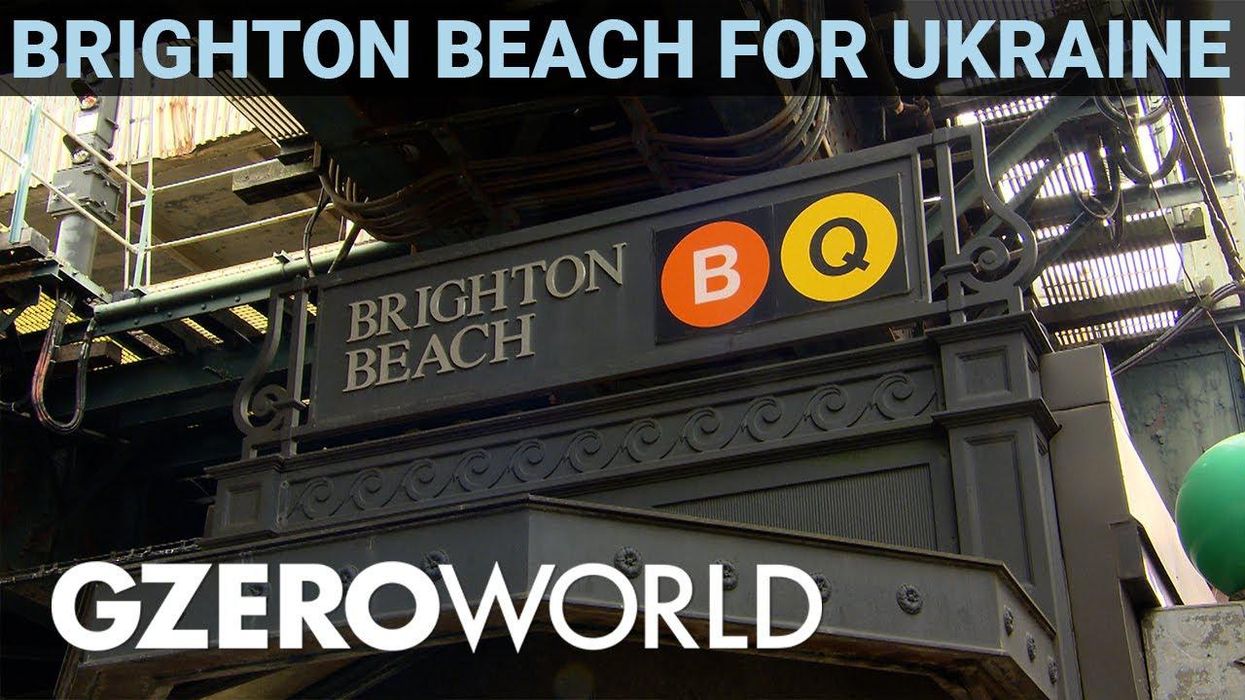GZERO Reports
What Eurovision means to Ukrainians at war
Where else will you find banana-inspired wolves, dubstep rapping astronauts, or earworms about vampires? It’s Eurovision, of course: the 70-year-old song contest that pits nations against each other in an annual spectacle of camp, kitsch, and catchy melodies. But for Ukrainians – who have won the contest three times in the past 20 years – the contest is about something much more. On GZERO Reports, we visit a secret Eurovision watch party outside of Kyiv, a drag party in New York City, and look at how Eurovision is more political than you – or those wolves, astronauts, and vampires – could imagine.
May 18, 2023



